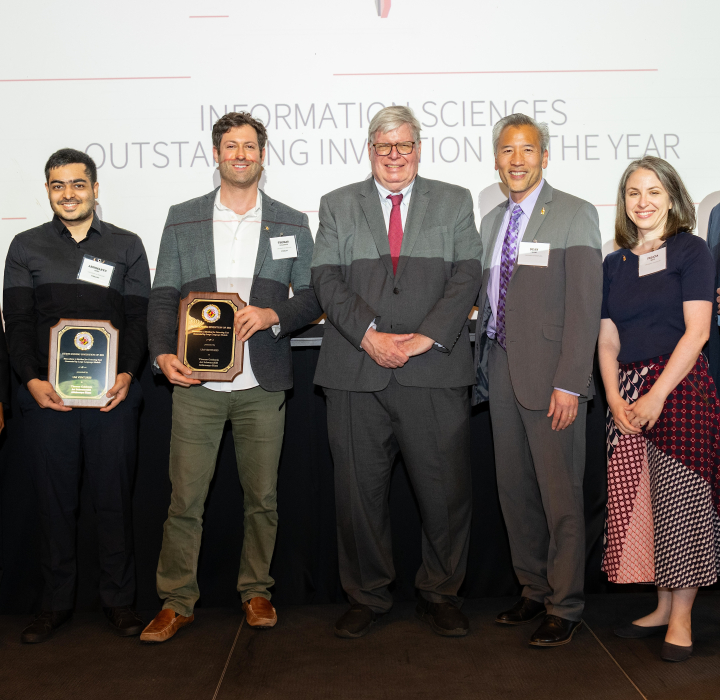Goldstein Leads Team to Invention of the Year Honors
With the exponential growth of large language models (LLMs) like ChatGPT showing no signs of abatement, distinguishing human from machine-generated content remains a concern in academia, journalism and many other segments of our society.
University of Maryland researchers have been working on a solution, developing an innovative software platform called Binoculars that can detect text generated by LLMs at an almost 90% success rate.
The technology was named the winner of the information sciences category in this year’s UMD Invention of the Year competition at the annual Innovate Maryland event on April 29. Recognized along with three winners from other categories, Binoculars was one of 154 inventions disclosed at UMD this past year.
Tom Goldstein, the Volpi-Cupal Endowed Professor of Computer Science with an appointment in the University of Maryland Institute for Advanced Computer Studies, led the development of project, with assistance from Abhimanyu Hans, a master’s student in computer science, and Avi Schwarzschild, who earned his Ph.D. in applied math and scientific computation in 2023 with Goldstein as his adviser.
The key to their technology, say the researchers, is a framework that compares the randomness of text to a measure of background perplexity produced by an LLM. They note that Binoculars is highly efficient without the need for any training data and can spot LLM-generated text without the need to modify the LLM. It is also highly accurate, with an accuracy and false positive rates of 90% and 0.01%, respectively, when tested on ChatGPT output.
“Most people are pessimistic that detectors cannot coexist with large language models, but this project really showed that—with high precision—we can have detectors that actually work,” says Hans.
Goldstein, who is director of the UMD Center for Machine Learning and a co-PI in the Institute for Trustworthy AI in Law & Society, praised Hans and Schwarzschild for their meticulous work that gave the project its credibility.
“With a socially-impactful project like this, it’s important for the science to be done in a thorough way so that users can put their trust in these systems,” he explains.
Binoculars can be practically applied to content moderation on social media platforms like Facebook and X, product reviews on Amazon, or comment sections on political articles.
“The hope is that these kinds of tools will provide us with better platform moderation and a way to protect their quality of information,” says Goldstein.
A demo of the tool is publicly available on GitHub, and plans to make it more accessible are in the works.
Goldstein and Hans were on hand yesterday to accept their award, with Schwarzschild receiving the news via a phone call to Pittsburgh, where he is currently a postdoc at Carnegie Mellon University.
In speaking at the event, UMD Vice President for Research Gregory F. Ball acknowledged all of the inventors in this year’s competition.
“Each of tonight’s nominees for Invention of the Year started with that spark of an idea that was allowed to grow and evolve with the help of our robust research enterprise, which we all contribute to and improve on a daily basis,” he said. “I firmly believe that no grand challenge is too daunting for our world-class researchers to confront head-on and work toward a solution.”
—Story by UMIACS communications group
The Department welcomes comments, suggestions and corrections. Send email to editor [-at-] cs [dot] umd [dot] edu.
